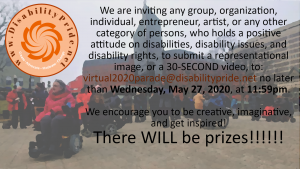[responsivevoice_button voice=”US English Female” buttontext=”Listen to Post”]
The International Disability Day of Mourning is March 1st, we mark it every year here and remember the victims with heavy hearts.
One of the victims Gerianne and I discuss often is Tracy Latimer. Her murder was a shock to all Canadians and is still at front of mind when we think and talk about filicide of disabled people. The support her murderer has received, still receives, is something neither of us can wrap our heads around.
I have been on a bit of a true crime kick lately, listening to the Canadian True Crime Podcast on my frequent long drives dropping my kids off and picking them up from school. I’m going through the episodes, oldest to newest, and a few days ago I came across Episode 37, Tracy Latimer, originally released in December, 2018.
When I saw who the victim was for this podcast, I was immediately ready to delete all subsequent episodes from my phone, I was mentally preparing myself for a take that was sympathetic to Tracy’s murderer, as is so often the case but I was willing to give the host, Kristi Lee, a shot. She had impressed me with her reasonable and balanced take on many other crimes and I had a slight hope that she would be able to tackle this one with the same fairness.
I was right to give her a chance. I still got very angry listening to Tracy’s story and the story of her murder but not at the host. Lee presented the case well and was incredibly neutral in her discussion of the details of the case, the support Tracy’s murderer has received and the anger about both that has come from the disability rights community. I could not tell whether Lee supported Tracy’s murderer or thought his conviction was just.
If you are unfamiliar with the Latimer case and are interested in learning more, I highly recommend Canadian True Crimes Episode 37, Tracy Latimer. It does go into a lot of detail so if you’re uncomfortable with descriptions of murder, this may not be the podcast for you. I learned a fair bit about the case and about the push for adding “compassionate homicide” to Canada’s legal code.

